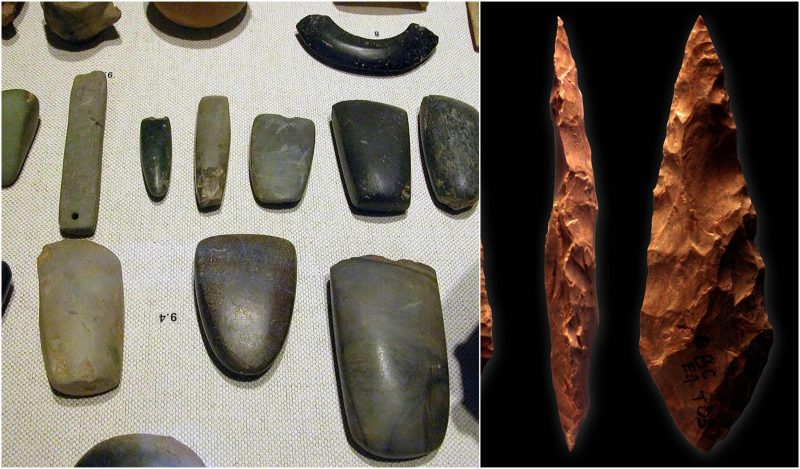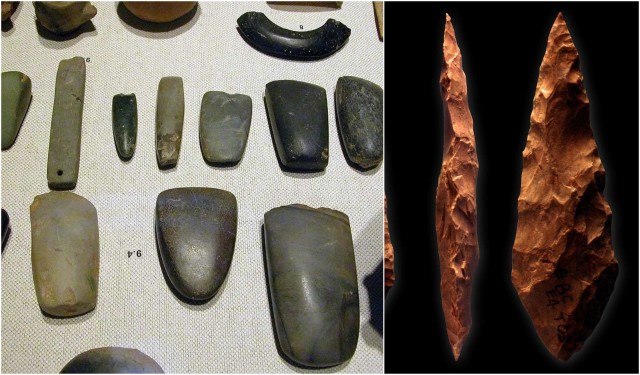
A retired carpenter named W.T. Wallington has used his free time wisely. He believes he has used original methods to recreate his own ancient megalith.
He said that the reason he built the new version of the megalith is because over the years as he worked as a carpenter, he had to improvise certain tools that he didn’t have along on his jobs. This allowed him to get the job done that day.
He added that about 20 years before, he’d had to remove over 1,000 pounds of saw-cut concrete blocks from a floor. He explained that he and the workers ran into a problem of not having a machine that could reach some of those blocks. In order to remove those blocks, they had to break them into smaller pieces with a sledgehammer and load them on a wheelbarrow. However, that proved to be too much labor for a simple solution, so Wallington improvised.
Visit the link to view videos and photos from the megalith being put to work.
Has anyone ever thought about what time in history tools were created to make life easier? Tools have been around since the Stone Age, and through the years, they have become more and more complex and useful.
Thanks to archaeologists, tools have been found in many areas of the world. By studying these tools, researchers can get an idea about how people used to live and what those tools were used for.
Tools have been found from nearly 2.6 million years ago, as studied and dated by researchers in the field. People generally used stones for making their tools, however, some archaeologists have found other tools made from bone. Those tools made from bone were more susceptible to breaking, which caused archaeologists to find them broken into several pieces after being buried for so long.
By simply studying these areas where the tools have been found, archaeologists are able to study where humans lived, how they dispersed throughout the years, and even their ability to survive in their habitats. However, the major difficulty for archaeologists is that there were several different groups of people living in different areas, making it hard for archaeologists to determine which group lived in a particular area.
Arguably, the most important pieces of evidence gleaned from the finding of these tools is perhaps the technologies, dexterity, and mental skills these people must have had to make these tools.
Here are some of the ages during which different tools were created:
-
Early Stone Age Tools

Axe heads found at a 2700 BC Neolithic manufacture site in Switzerland, arranged in the various stages of production from left to right. Source 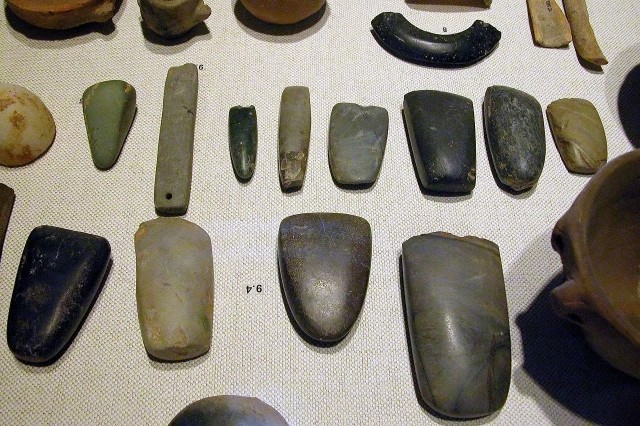
Neolithic artifacts, including bracelets, axe heads, chisels, and polishing tools.Source
The earliest tool found to date was made about 2.6 million years ago. This age had some of the most basic stone tools made by the early humans. The tools have been dubbed the Oldowan toolkits. They include hammer stones, stone cores, and sharp stone flakes. 1.76 million years ago humans began making Acheulean hand axes and other larger cutting tools.
-
Middle Stone Age Tools
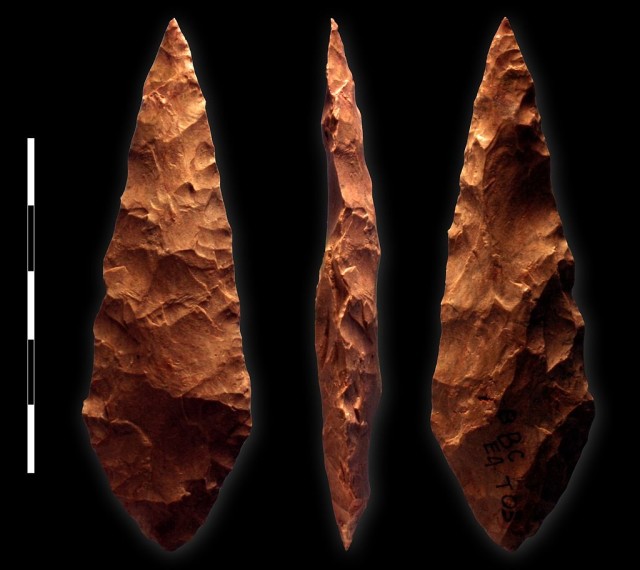
Middle Stone Age tool from Blombos Cave.Source
200,000 years ago, the tool inventions began to speed up. The Middle Age toolkits had included points which would be put onto shafts to make spears, stone awls which would be used for perforating hides, and scrapers which were for preparing hides, wood, and other materials.
-
Later Stone Age Tools
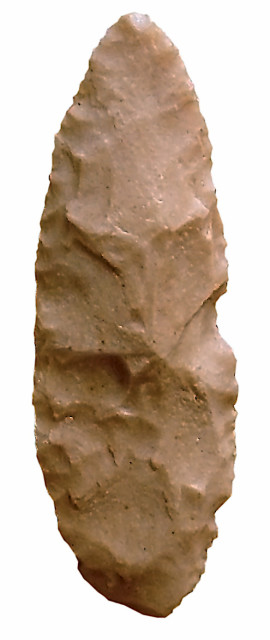
African biface artifact dated in Late Stone Age period .Source
Just as the pace of toolmaking began quickening in the Middle Ages, it accelerated even more during the Later Stone Age. People began trying out different materials such as bone, ivory, antler, and stone. Even the level of craftsmanship began excelling. That is when each group of crafters began using their own distinct touches, even putting in their certain cultural identities into the tools. Soon, they began making the tools their own way, passing down the trade.
As one can see, the making of tools is highly important. Without our ancestors’ experimentation with different trades and techniques, we may not have been able to learn to use those tools. In fact, some of those tools and ideas are being used today to make our lives better.
